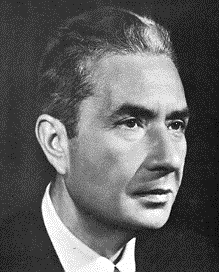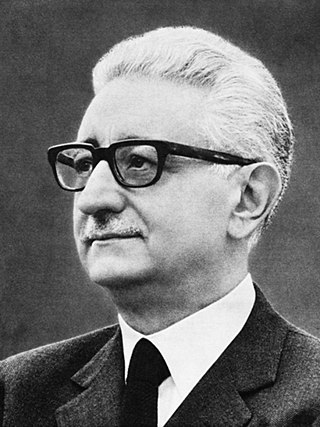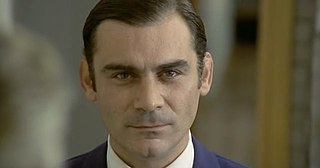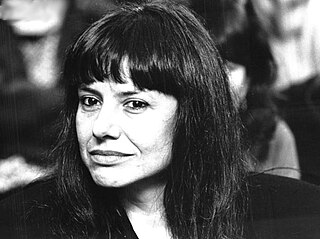
Francesco Maurizio Cossiga was an Italian politician. A member of Christian Democracy, he was prime minister of Italy from 1979 to 1980 and the president of Italy from 1985 to 1992. Cossiga is widely considered one of the most prominent and influential politicians of the First Italian Republic.

Aldo Romeo Luigi Moro was an Italian statesman and prominent member of Christian Democracy (DC) and its centre-left wing. He served as prime minister of Italy in five terms from December 1963 to June 1968 and from November 1974 to July 1976.

Giovanni Leone was an Italian politician, jurist and university professor. A founding member of Christian Democracy (DC), Leone served as the president of Italy from December 1971 until June 1978. He also briefly served as Prime Minister of Italy from June to December 1963 and again from June to December 1968. He was also the president of the Chamber of Deputies from May 1955 until June 1963.

Gian Maria Volonté was an Italian actor and activist. He is best known for his roles in four Spaghetti Western films: Ramón Rojo in Sergio Leone's A Fistful of Dollars (1964), El Indio in Leone's For a Few Dollars More (1965), El Chuncho Munoz in Damiano Damiani's A Bullet for the General (1966) and Professor Brad Fletcher in Sergio Sollima's Face to Face (1967).

The Mattei Affair is a 1972 Italian drama film directed by Francesco Rosi. It depicts the life and mysterious death of Enrico Mattei, an Italian businessman who in the aftermath of World War II managed to avoid the sale of the nascent Italian oil and hydrocarbon industry to US companies and developed them in the Eni, a state-owned oil company which rivaled the "Seven Sisters" for oil and gas deals in Northern African and Middle Eastern countries.
The Nastro d'Argento is a film award assigned each year, since 1946, by Sindacato Nazionale dei Giornalisti Cinematografici Italiani, the association of Italian film critics.

The Four Days of Naples is a 1962 Italian film, directed by Nanni Loy and set during the uprising which gives its name. It stars Regina Bianchi, Aldo Giuffrè, Lea Massari, Jean Sorel, Franco Sportelli, Charles Belmont, Gian Maria Volonté and Frank Wolff.

Buongiorno, notte is a 2003 Italian drama film directed by Marco Bellocchio. The title of the feature film, Good Morning, Night, is taken from a poem by Emily Dickinson.

Robert Katz was an American novelist, screenwriter, and non-fiction author.

Todo modo, also known in English as One Way or Another, is a 1976 Italian satirical political drama film directed by Elio Petri starring Gian Maria Volonté and Marcello Mastroianni. It is loosely based on the novel of the same name by Leonardo Sciascia.

The kidnapping and murder of Aldo Moro, also referred to in Italy as the Moro case, was a seminal event in Italian political history. On the morning of 16 March 1978, the day on which a new cabinet led by Giulio Andreotti was to have undergone a confidence vote in the Italian Parliament, the car of Aldo Moro, former prime minister and then president of the Christian Democracy party, was assaulted by a group of far-left terrorists known as the Red Brigades in via Fani in Rome. Firing automatic weapons, the terrorists killed Moro's bodyguards — two Carabinieri in Moro's car and three policemen in the following car — and kidnapped him. The events remain a national trauma. Ezio Mauro of La Repubblica described the events as Italy's 9/11. While Italy was not the sole European country to experience extremist terrorism, which also occurred in France, Germany, Ireland, and Spain, the murder of Moro was the apogee of Italy's Years of Lead.

Adriana Faranda is an Italian former terrorist, who was a member of the Red Brigades during the kidnapping of Aldo Moro.

Giuseppe Ferrara was an Italian film director and screenwriter.

The Bankers of God: The Calvi Affair is an Italian drama film directed in 2002 by Giuseppe Ferrara.

The Red Brigades was an Italian Marxist–Leninist armed terrorist guerilla group. It was responsible for numerous violent incidents during Italy's Years of Lead, including the kidnapping and murder of Aldo Moro in 1978. A former prime minister of Italy through the Organic centre-left, the murder of Aldo Moro was widely condemned, as was the murder of left-wing trade unionist Guido Rossa in January 1979. Sandro Pertini, the then left-wing president of Italy, said at Rossa's funeral: "It is not the President of the Republic speaking, but comrade Pertini. I knew [the real] red brigades: they fought with me against the fascists, not against democrats. For shame!"

Five Moons Square, also known as Five Moons Plaza and Piazza of the Five Moons, is a 2003 political thriller film written and directed by Renzo Martinelli, who had also directed Porzûs (1997) and Vajont (2001). It is inspired by Italian politician Aldo Moro's kidnapping and murder by the Red Brigades (BR) terrorist group; the film presents a possible reconstruction of this story within a fictive conspiracy theory.

Eleonora Chiavarelli was an Italian woman who was the spouse of Aldo Moro, a politician who was kidnapped and murdered in 1978.

Armenia Balducci was an Italian actress, screenwriter and director.
Exterior Night is a 2022 Italian-language drama film co-written and directed by Marco Bellocchio based on the kidnapping and murder of Aldo Moro. The film is the second feature by Bellocchio based on the Moro case after Good Morning, Night, shot in 2003.
In May 1978, Aldo Moro, a Christian Democracy (DC) statesman who advocated for a Historic Compromise with the Italian Communist Party, (PCI), was murdered after 55 days of captivity by the Red Brigades (BR), a far-left terrorist organization. Although the courts established that the BR had acted alone, conspiracy theories related to the Moro case persist. Much of the conspiracy theories allege additional involvement, from the Italian government itself, its secret services being involved with the BR, and the Propaganda Due (P2) to the CIA and Henry Kissinger, and Mossad and the KGB.

















